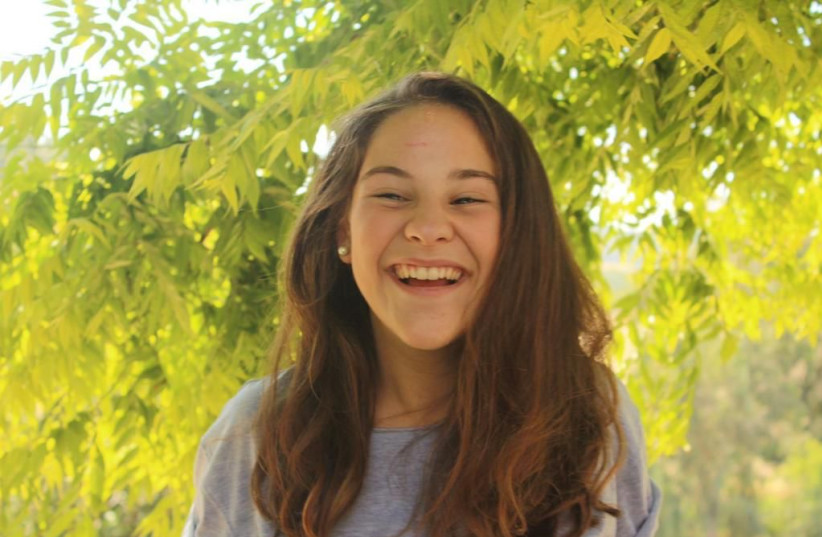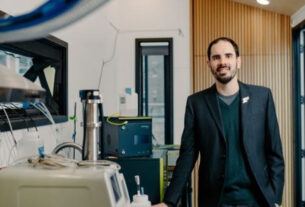Over the years, the Health Ministry has set up committees, held discussions and initiated projects to reduce suicides of which 600 succeed and 10 times as many are attempted.
Gila’s Way, a non-profit organization that promotes mental health awareness and education, has been invited to run a landmark conference on suicide prevention at the Knesset on Tuesday. The organization was founded by Rabbi Shalom Hammer in memory of his daughter, Gila Hammer, who died by suicide at the age of 18 in 2019 after experiencing trauma and struggling with anxiety and depression.
The two-hour conference, beginning at noon, is to be hosted by Religious Zionist Party MK Michal Waldiger and will focus on how open dialogue stigma-breaking can help.
Gila was a beautiful, talented teenager who exuded kindness and empathy to those around her. Her father, and his organization, are teaching some difficult lessons based on his and his family’s own trauma. Gila’s Way shares Gila’s story so that more people will embrace her values, in order to save lives and help prevent the kind of loss that is indescribable.
The conference is entitled “Conversation Regarding Suicide Helps Prevent Suicide” and will include family members of suicide victims, Knesset members and mental health advocates and professionals. The keynote speaker will be Prof. Sammy Chamdan, a psychologist and member of the National Council on Suicide Prevention, a man heavily involved in suicide-prevention of youth and young adults as well as self-harm.
Action to reduce suicide rates in Israel
Gila’s Way will introduce four practical proposals aimed at raising awareness and promoting action to reduce suicide rates in Israel based on the organization’s extensive experience and research in suicide prevention. The organization’s website is located at www.gilasway.com; for more information on the conference, contact Carly at [email protected] As many as 150 people are expected to attend.
“Gila’s Way is honored to be invited to run this conference by MK Waldiger who is so sincerely and heavily involved in changing the face of mental health in Israel,” Hammer told The Jerusalem Post. “This conference and the proposals being made in the Knesset is yet another way in which dear Gila’s memory is being honored and commemorated properly as we continue our efforts to save more lives.” He and his wife live in Beit Shemesh and have six children.
“Gila’s Way is honored to be invited to run this conference by MK Waldiger who is so sincerely and heavily involved in changing the face of mental health in Israel.”
Rabbi Shalom Hammer
According to Health Ministry statistics, suicide is the second cause of death for teenage boys and young adults aged 15-24 and the third for girls aged 15-24 and men aged 25-44.
Among the signs of suicidal thoughts in teens and young adults are changes in eating and sleeping behaviors; alcohol and drug use; withdrawal from friends and family members; neglect of personal appearance; a lack of response to praise; irritability; sadness or crying spells; posts on social media suggesting feelings of isolation or depression; and talking about or otherwise indicating plans to commit suicide or self-harm.
“Young people are susceptible for any of a million reasons,” said Hammer. Some suffer from depression, hopeless or anxiety. They undergo physical and hormonal changes, pressures from society, social media, problems with self-image. COVID-19 put the maturity level of many youths back two years because of social isolation.”
Suicide rates tend to increase with age and are highest among white men aged 65 and older. Divorced and widowed men in this age group have the highest suicide rates.
These warning signs may be present in older adults who have a high risk for suicide: depression; other mental health problem such as severe anxiety, bipolar disorder (manic-depressive illness), or schizophrenia; substance-use disorder; being alone for long periods of time (social isolation); being preoccupied with death in conversations; the diagnosis of a serious physical illness; recent life changes such as the death or chronic illness of a spouse or child, retirement or financial problems; and physical disabilities.
Recent immigrants are also considered to be at higher risk. Jews who immigrated from Ethiopia are today 5% more likely to commit suicide than the general population even though suicide was unknown in their native country.
“We suggest that signs of suicide risks be posted in health fund clinics, billboards near bus stops and train stations, in public bathrooms and elsewhere so that people are aware of them. We want the Education Ministry to adopt the program we suggested,” said Hammer, who visits schools. “Youngsters have heard about everything, but they have to be taught in a healthy environment.”




